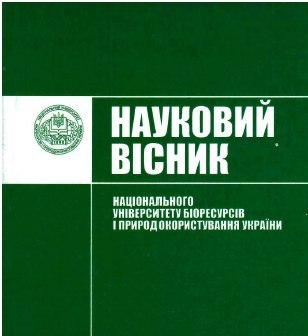Declension of numbers in the Polish language and the typical students’ mistakes who learn Polish as a foreign language
DOI:
https://doi.org/10.31548/philolog0(276).2017.012%20-%2018Abstract
The concept of quantity is important when reproducing specific information. The numeral adjective is a part of speech we use every day, and in some situations we cannot do without them at all. In the Polish language, numeral adjectives are considered to be the most complex part of the language for both foreigners, studying Polish, and for native speakers. Mistaken forms in the use of numerical constructs occur not only in colloquial style, but also in writing. A number of inconsistencies is primarily due to the fuzzy definition of the numeral adjective as part of the speech, since during the analysis of lexemes it is not always possible to determine unambiguously which part of the speech belongs to the word. In addition, in colloquial style, many numerical constructs, which are not normative, are used. As a result, even Polish native speakers are forced to use the dictionary to control the correctness of the use or daily variation of numerical phrases, and therefore, the chosen topic is relevant.
Purpose. The purpose of the paper is to describe and consistently analyze grammatical numerical inconsistencies, describe the difficulty of memorizing normative variants, as well as comment on the typical mistakes made by students when studying Polish as a foreign language. The materials for the study were the practical, independent, modular and final tasks of the students, which are performed during the study of the Polish language as a foreign language, and include exercises intended to control the level of assimilation of declarations and the harmonization of numeral adjectives in the Polish language.
Methods. We use descriptive, comparative, and comparable research methods to accomplish the tasks and achieve our goals.
Results. We conventionally divided the article into two parts, theoretical and practical. In the first part we consider, describe and characterize the numeral adjectives. In the second one, we present the most common mistakes and normative variants of the use of numerical
constructs. For this purpose, we analyzed the most common mistakes that students assume while performing practical, self-development work, modular, and credit tasks.
The results of the analysis have showed that the greatest difficulty arises upon the declination of the number of numeral adjectives from 1 to 4 in the masculine-person gender, as well as the combined and fractional numerals. It raises the problem of denoting the dates and complex numeral adjectives,also the syntactic norms of numerator sequence with a predicate are often violated.
Originality. For the correct declension of numeral adjectives it is not enough to have a developed linguistic intuition, since it is encoded in the language of everyday human communication. In the Polish language, in particular, when the numerals are omitted, one needs to know the grammatical nuances, for example, to take into account the separation of all nominal parts of a language in a plural into a masculine-person and a non-masculine- personal genders, to remember about numeral adjectives that are abbreviated as nouns or adjectives, or have a number of variant forms that are a literary norm.
Conclusion. Thus, the numeral adjective as a part of speech needs further attention and study, since the Polish language is characterized by not typical and heterogeneity. Apart from the described and analyzed grammatical features, we can say for sure that the evolution of the numerals in the Polish language continues and, in our opinion, it will be continued for a long time.
References
Kolodina, L. S. (2017) Trudnoshchi zasvojennya gramatychnoji kategorii rodu imennykiv pry vyvchenni polskoji mowy jak inozemnoji [Difficulties of mastering of grammatical category of sort of nouns are at the study of Polish as foreign ] // Molod’ і rynok – № 1 (144). – Drohobych, 39-42.
Popovich, N.M., Shynkaruk, V.D., (2011) Cyntaksychna struktura rechen z chyslivnykovym komponentom v ukrainskii movi: monohrafiia [The syntactic structure of sentences with a numeric component in the Ukrainian language]: monografiia - Chernivtsi: Chernivtsi National Unt., 2011,136.
Doroshevski, Vitold. (red.). (1997) Slownik jenzyka polskiego [Dictionary of Polish] Pshedruk elektronichny. [online]. Warshawa: Vydavnictwo Naukove PVN. Na podstavie stron online: http://doroszewski.pwn.pl/haslo/liczebnik/
Laskovski, Roman. (2014) Gramatyka vspulchesnego jenzyka polskiego [Grammar of modern Polish] Warshawa: Vydavnictvo Naukove PVN, 331.
Polan’ski, Edvard, Novak, Tomash, Shopa, Marek. (2004) Slovnik jenzyka polskiego [Dictionary of Polish] Katowice: Videograf II, 688.
Pyzik, Juzef. (2006) Pshygoda z gramatykon: fleksija i slovotvurstvo imion: ch’wichenia funkcjonalno-gramatychne dla cudzoziemcuv [Adventure with grammar: fleksja and word-formation of the names: functional-grammatical exercises for foreigners] Krakuw: Universitas, Jenzyk polski dla cudzoziemcuv, 462.
Siuciak, Miroslava. (2008) Kshtaltowanie kategorii gramatychnej lichebnika w jenzyku polskim [Forming of grammatical category of numeral in Polish] Prace naukove Universytetu Slonskiego v Katowicah. Katowice: Vydavnictvo Universytetu Slonskiego, 254.
Downloads
Published
Issue
Section
License
Relationship between right holders and users shall be governed by the terms of the license Creative Commons Attribution – non-commercial – Distribution On Same Conditions 4.0 international (CC BY-NC-SA 4.0):https://creativecommons.org/licenses/by-nc-sa/4.0/deed.uk
Authors who publish with this journal agree to the following terms:
- Authors retain copyright and grant the journal right of first publication with the work simultaneously licensed under a Creative Commons Attribution License that allows others to share the work with an acknowledgement of the work's authorship and initial publication in this journal.
- Authors are able to enter into separate, additional contractual arrangements for the non-exclusive distribution of the journal's published version of the work (e.g., post it to an institutional repository or publish it in a book), with an acknowledgement of its initial publication in this journal.
- Authors are permitted and encouraged to post their work online (e.g., in institutional repositories or on their website) prior to and during the submission process, as it can lead to productive exchanges, as well as earlier and greater citation of published work (See The Effect of Open Access).

